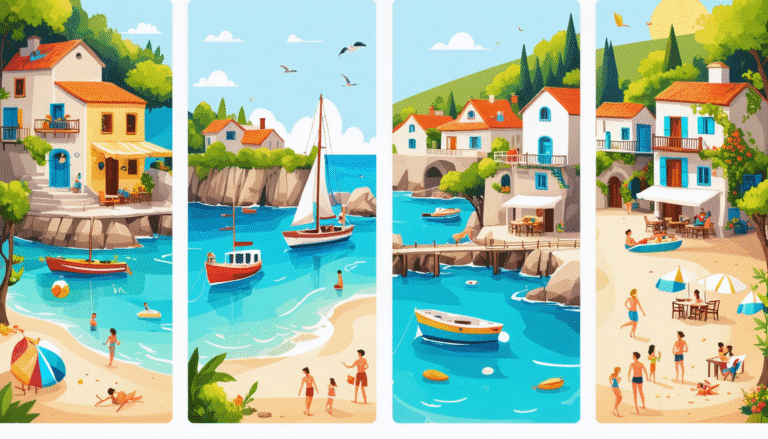|
IN BRIEF
|
It’s hard to imagine the idyllic fjords or the majestic Lofoten islands overwhelmed by crowds… and yet! In the face of growing popularity, Norway is taking a bold step with an innovative tax aimed at regulating overtourism. An original way for this Nordic country to preserve its natural treasures while ensuring the welfare of residents and improving infrastructure. Visitors will soon need to expect a small surcharge on their stays, especially in the most sought-after areas. This measure is not so trivial in a country that is quietly beginning to play in the league of major European tourist destinations.
A fresh breeze is blowing over the fjords: Norway is tackling overtourism head-on and innovating with a new tourist tax. In this article, discover how this country, often praised for its breathtaking landscapes and legendary calm, is preparing to manage the influx of visitors to its most iconic locations. The goal: to preserve the Norwegian magic without turning it into a mere overcrowded postcard!
A preserved country… facing its moment of glory
When thinking of destinations affected by overtourism, Norway doesn’t immediately come to mind. And yet, this northern gem is witnessing skyrocketing success. With more than 38 million overnight stays expected in 2024, nearly 30% of which are by foreign travelers, Norway is asserting itself as a rising star in European tourism. The regions of the fjords and the Lofoten islands entice travelers, but the downside has quickly surfaced: saturated infrastructure, insufficient sanitary facilities, and overcrowded parking lots become commonplace during peak season.
A new lever: the anti-overtourism tax
To counter this summer pressure, Norwegian authorities are taking strong measures: a new tax of up to 3% will soon be applied to each night spent in a hotel or tourist rental, particularly in extremely popular areas. Good news for local municipalities, as they will have the choice of whether to apply this surcharge, which can vary by season to better accommodate peak times. This measure is reminiscent of the famous tourist tax in Bali, or other initiatives taken in some French coastal areas to manage massive inflows.
Funds to preserve Norway’s beauty
But what will these new revenues be used for? Simply to strengthen essential facilities in the affected areas: plenty of public restrooms, well-planned parking, optimized signage, not to mention upgrades to facilitate coexistence with local populations. One certainly thinks of the efforts made in the Bassin d’Arcachon or elsewhere, where communal well-being remains a priority.
And after? Measures that could cause waves
Cruise operators are also not safe from regulatory scrutiny, as future measures targeting massive arrivals on the coasts are being studied. It must be said that large cruise ships do not hesitate to drop hordes of visitors at once, turning peaceful fishing villages into overheated anthills. A scenario that echoes the challenges faced elsewhere in the world, akin to what is happening in certain areas like South Korea where traveling sometimes becomes a true headache.
A summer management… and ultra-targeted
Unlike other regions where tourism spans the entire year, Norway concentrates a significant portion of its visitors in summer, when light is omnipresent and landscapes are pristine. This “seasonal and concentrated” tourism explains why even modest numbers compared to Spain or France can create human traffic jams in certain places. This hyper-concentration therefore necessitates further innovation to maintain balance while continuing to attract fans of spectacular getaways (and even seekers of summer getaway promotions!).
A fundamental trend for traveling differently
Between overtourism and preservation, the line is thin. Many destinations are contemplating this complicated equation, sometimes questioning the very future of mass travel, as summarized well in this article on the end of travel as we know it. Norway, on the other hand, is charting its path with pragmatism, combining fiscal innovation and concern for the common good without losing its soul.











